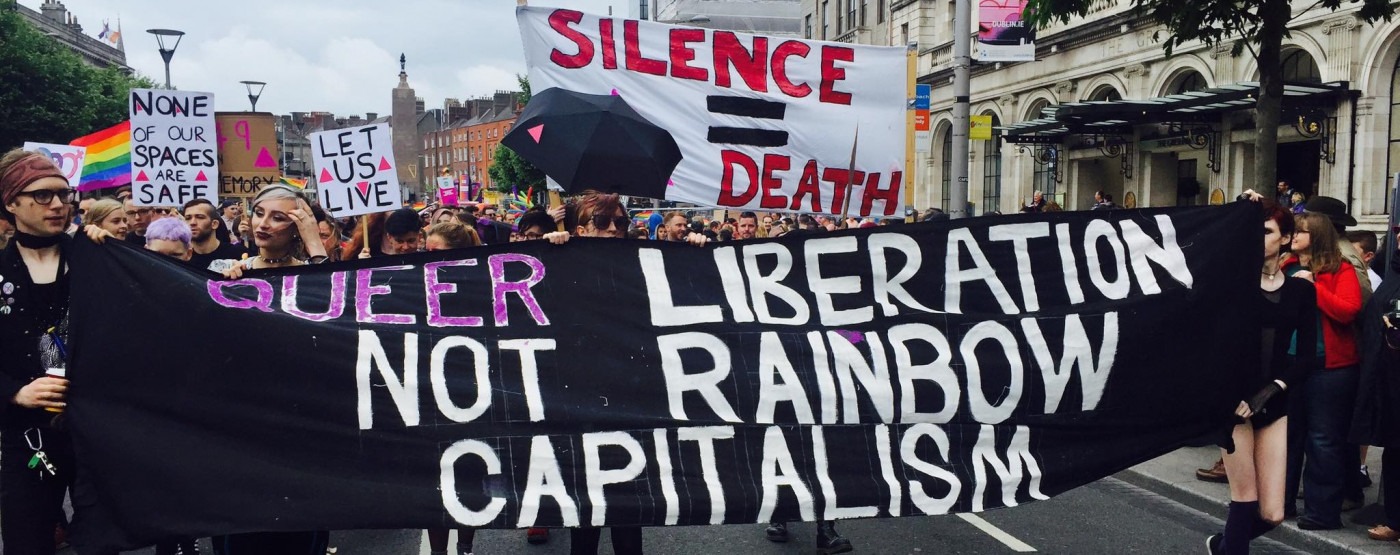True colours: dismantling the myth of corporate allyship
It’s coming to the end of Pride Month and we have once again found ourselves in the middle of ‘Rainbow Capitalism’ as companies promote Pride-themed products and state their support for the queer community. Yet it is not allyship which prompts corporations to behave in this way, it is money and credibility. And as the LGBT+ community faces an existential threat from vicious Conservatives who never wanted to grant us our rights in the first place, the sheer level of cynicism behind ‘pinkwashing’ has been exposed for all to see.
At the slightest sign of backlash from a vocal right-wing minority, we have seen multiple corporations ditch Pride marketing and product lines, predictably abandoning the gay community the very moment they thought they might not profit from us. They have shown their true colours; they never had our backs and never will. The harsh reality that the queer community must face is that although we have won our rights, that victory is fragile. In order to maintain it, we must question where our true allies lie and who is simply following the wind.
This year has seen the most vicious response to Pride month that I’ve witnessed in my lifetime, particularly across the pond in the US. No longer do conservatives attack ride under the guise of ‘legitimate concerns’ about transgender people or make jabs about gender identity; they now openly attack the community as a whole with allusions to rape and paedophilia which echo homophobia of earlier times.
Allyship was always an illusion
Recently, an LGBT line of products at Target was savaged by conservatives for allegedly including tuck-friendly swimwear for children, leading to confrontations in store and heavy backlash online. Even though these claims weren’t remotely true, Target showed their credentials as a bunch of wet rags by pulling the stock from shelves.
In a similar incident this year, trans influencer Dylan Mulvaney shared a promotional video for Bud Light beer. Conservatives, as usual, massively took issue with a trans person simply existing in the public eye and promptly made moves to not only boycott Bud Light, but also vandalise their products and send personal attacks to Dylan. Instead of rebuking this behaviour and standing with the LGBT community, Bud Light instead apologised for causing controversy and did very little to show solidarity with Mulvaney.
The ease with which companies turn their backs on LGBTQ+ people should not be entirely surprising, however. If we look at the track record of many large corporations, as well as how they have historically managed their marketing outside the west, it becomes clear that allyship was always an illusion.
They are not genuinely concerned about supporting the queer community and are simply following the money
Returning to Target, the entire reason they brought Pride merch to their stores in the first place in 2012 was to try and woo the LGBTQ+ community after supporting the campaign of a homophobic gubernatorial candidate in Minnesota two years earlier.
Now, I believe that it’s fine to forgive and forget if an individual or organisation has shown they have truly changed, but looking at the behaviour of Target over the last 13 years and in light of the recent controversy, it seems obvious to me that they are not genuinely concerned about supporting the queer community and are simply following the money.
Examining the behaviour of corporations more broadly, it has been common in the past for them to take largely superficial actions to show allyship.
To give some examples, companies will change their profile pictures to rainbow colours and smother their store fronts with Pride flags. Queer characters will be shoehorned into movies and videogames with little genuine exploration of their sexuality or identity.
The abandonment of the LGBT community by large corporations should scare us but not surprise us
In both instances, it is usually true that when there is an opportunity to go beyond some superficial flag waving and show meaningful support, corporations will shy away from it.
For example, social media accounts will only bear the Pride flag in countries where gay rights are already widely acknowledged, as was the case with video game company Bethesda’s Twitter pages in 2020.
The few scenes depicting queer romance in blockbusters will be cut when the film is aired in territories where gay rights aren’t supported, as was the case with a two-second kiss between two women in the latest Star Wars movie. Within countries and territories where gay rights are genuinely threatened, the gay representation that companies claim to champion will be broadly non-existent.
Bearing this historical precedent in mind, the abandonment of the LGBT community by large corporations should scare us but not surprise us. The best way to combat the insincerity of corporate allyship is by calling it out when we see it and not naively believing that having a bunch of rainbows chucked in our faces is necessarily synonymous with genuine support. If companies are not willing to risk scrutiny for queer representation in areas where it is needed the most, it is safe to assume that it is not a genuine priority for them.

Comments